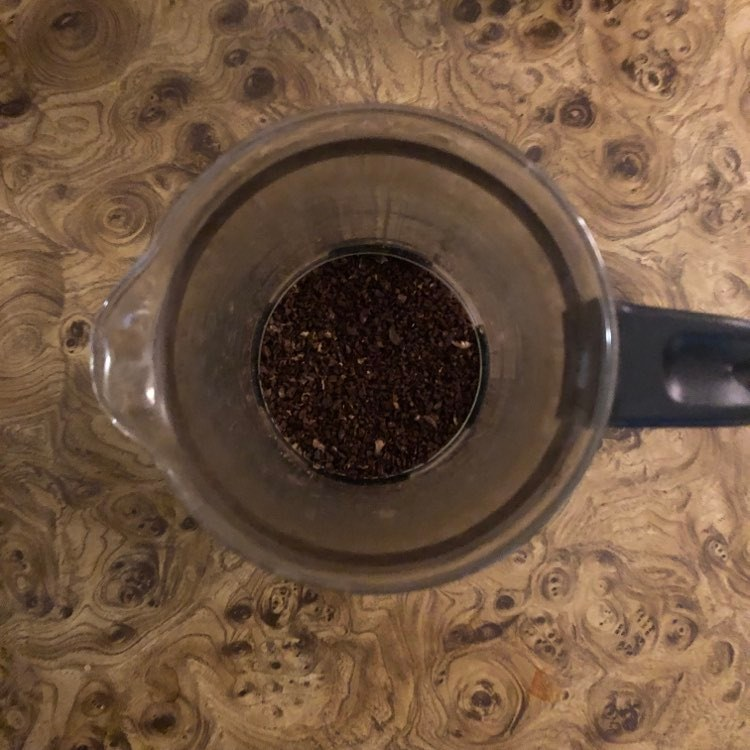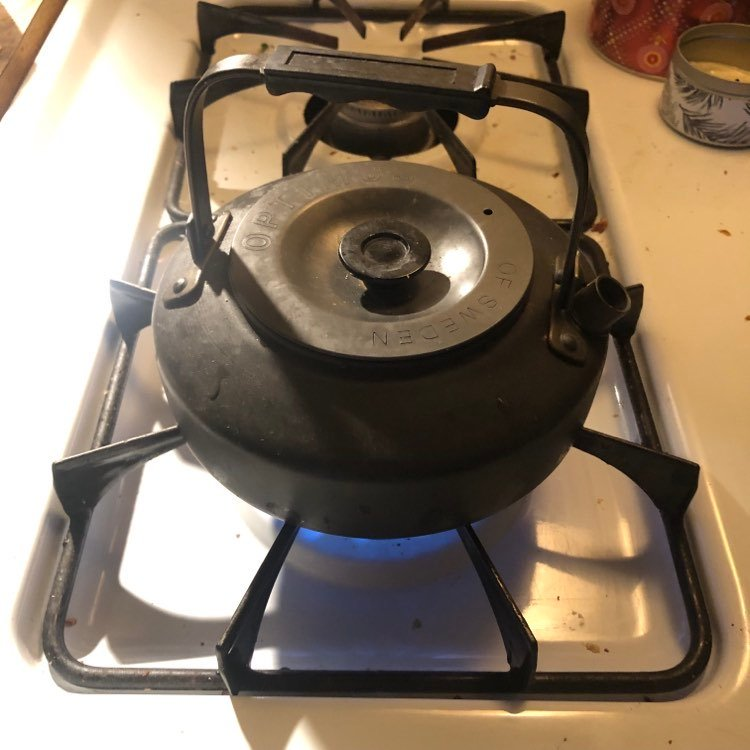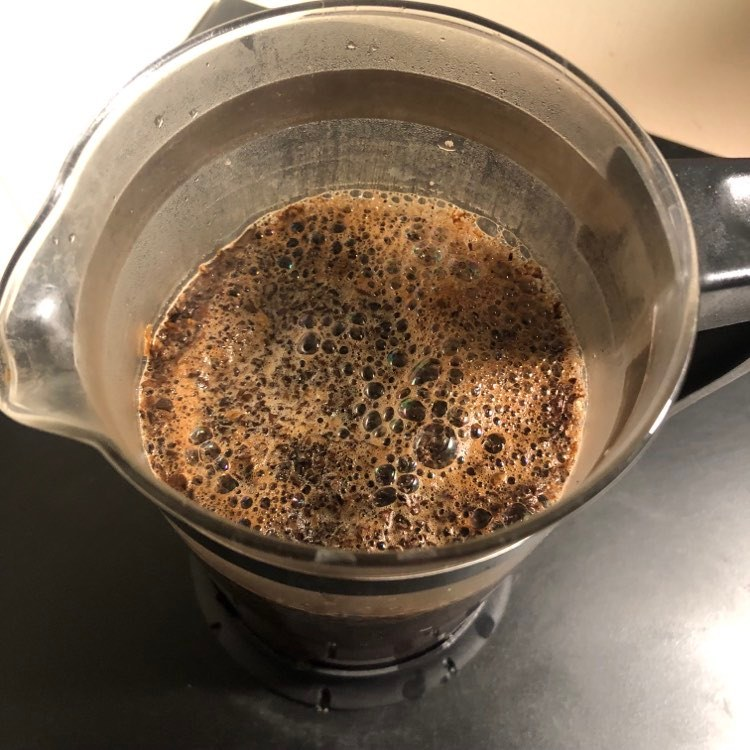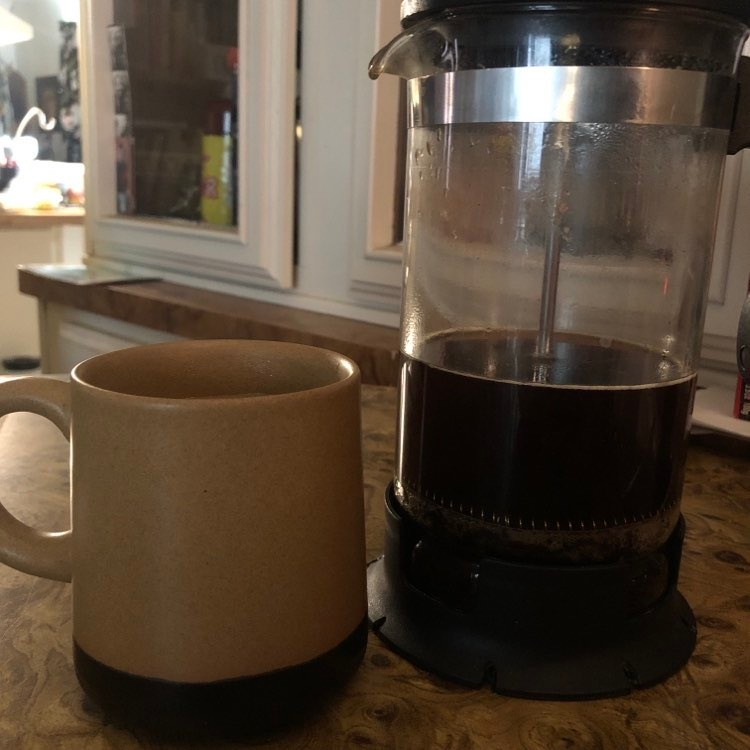I am a self-professed recovering coffee snob. While I appreciate a finely crafted cup of coffee, my opinions on it are much the same as my views on pizza: Even a mediocre pizza is still pizza, and thus is still pretty good pizza. It's a good cup of coffee if you like what's in your cup, and I hold that as truth.
However, on weekends I like to treat myself to a little meditation in a cup by making coffee with my French press. It's a process that I have practiced for years, and I have worked this practice to make an end product I thoroughly enjoy, so I'd like to share that with you.
First, I wake up earlier than I'd like. As I've gotten older (and no longer work until 11pm since I left the hotel industry), I've found my body likes to start the day before 6:30am, and generally likes to get going by 5:30am. So, silently, as to not wake up my spouse, I make my way to the kitchen and gather my tools for a good batch of coffee.
I have found that grinding beans by hand in a burr grinder produces better results than with an electric blade grinder; a burr grinder gives a more consistent grind than a blade grinder so there isn't so much sludge on the bottom of the cup, though a blade grinder is fine for drip coffee in my opinion. Grinding by hand is a slow process but one that allows me to appreciate the aroma of the coffee and the feel of the grounds, and grinding whole beans allows the oils inside them to be released as fresh as possible, making a more complex and delicious cup.
I measure out about three tablespoons of beans per cup-- not like per 8 fluid ounces, but for each cup of coffee I plan to drink, which is more like 12 ounces or so I think. Generally, with a drip machine, I'll do one tablespoon of ground coffee to 6 ounces of water, but I like a more robust batch of pressed coffee. Plus, I find a coarser grind can make a batch of coffee weaker, so I err on the bolder side.
I fill my kettle with two coffee cups of water, plus another third or so to compensate for the water absorbed by the grounds. The kettle itself is an Optimus Terra that I got from Elevation Sierra Adventure Essentials years ago after using it to transfer eggnog to my first world-renowned Independence Fruitcake Festival. Over the years-- and many cups of coffee and tea-- I've come to learn the sounds it makes when the water is the temperature I want. The recommended temperature to brew coffee is 200F, and most hot water dispensers and electric kettles will get to about that, but as long as the water is just below boiling you're good.
After my kettle gives a low pitched rumbling and wisps of steam start flitting out of its little spout, I slowly pour the water onto the grounds in the press in a circular motion, being mindful to not dump in all the water at once. A nice frothy bloom is produced, and even though some people think it's sacrilegious I like to stir the grounds and water to better incorporate the whole mix.
After that time has passed and the coffee has cooled to a drinkable temperature, I slowly depress the plunger of the press, and with that it's ready to serve. I slowly pour myself a cup to ensure as little mud as possible from the bottom of the press gets out, and with the first sip take time appreciate the warmth, aromas, and flavors I worked to produce.
I reserve this for my weekends because, admittedly, it's time consuming. During the week I program a drip machine with pre-ground coffee to have a pot ready as soon as I roll out of bed, and as a functional beverage it's a great thing. After all, I don't always have two hours to dedicate to making and drinking a couple cups of coffee, and a convenient way to access caffeine before a 6:30am work shift is a beautiful thing I wouldn't want to give up any time soon.




